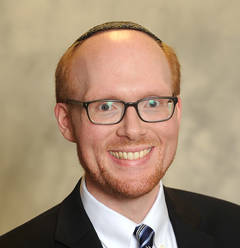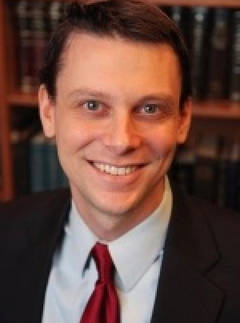Rabbi Kirzane Installation Weekend
Friday, October 26, 2018 • 17 Cheshvan 5779
All Day for 1 DaysRabbi Kirzane Installation Weekend
Please call the office to RSVP
 Friday, October 26
Friday, October 26
ONEG, 6:00 pm
Services, 6:30 pm
Dinner & Lecture, immediately following Services
Saturday, October 27
Luncheon & Lecture, immediately following 10am Services
Scholar in Residence, Rabbi Jason Rubenstein
Jason Rubenstein is the Howard M. Holtzmann Jewish Chaplain at Yale's Slifka Center and has a background as diverse as Yale’s Jewish community: a childhood at Temple Micah in Washington DC, formative years studying at Yeshivat Ma’ale Gilboa in northern Israel, and rabbinic ordination at the Jewish Theological Seminary. For eight years Jason taught on the faculty of the Hadar Institute, where he created classrooms, conversations, and communities that bring Torah to life by drawing on the fullness of students’ lives.
diverse as Yale’s Jewish community: a childhood at Temple Micah in Washington DC, formative years studying at Yeshivat Ma’ale Gilboa in northern Israel, and rabbinic ordination at the Jewish Theological Seminary. For eight years Jason taught on the faculty of the Hadar Institute, where he created classrooms, conversations, and communities that bring Torah to life by drawing on the fullness of students’ lives.
In addition to rabbinic ordination, Jason holds an AB in Social Studies from Harvard College and a Masters in Talmud from JTS. He is also the recipient of numerous awards including the Wexner Graduate Fellowship and the Covenant Foundation’s 2015 Pomegranate Prize for Emerging Educators.
Topics:
Religious Conflict, Religious Creativity: Between Alienation and Revelation
Can we have enough faith in ourselves - and in Judaism - to imagine that our conflicts with religion could also hold the keys to Jewish creativity? In this session we'll look at a tradition that begins with Maimonides' philosophy and continues through the poetry of Yehuda Amichai that does exactly this: by taking both ourselves and the tradition seriously, producing Torah that is new, life-giving, and even revelatory. Particular attention will go to the areas of our own lives and identities where we've experienced heart-ache with Judaism, and which therefore hold the greatest potential.
Honoring a Dishonorable Legacy: The Talmud's Frame for Reparations
What could Judaism offer the contemporary conversation around reparations for slavery in the United States? A surprising and poignant moment in inheritance law offers a starting-point: do children who inherit property stolen by their parents have an obligation to return it, and if so - why? We'll find a surprising moment here where the Talmud, starting from moral premises that are best described as conservative, arrives at liberal conclusions. In conclusion we will discuss whether, and how, this study can influence our participation in American political life.
| Share Print Save To My Calendar |
Tue, May 7 2024
29 Nisan 5784
Friday Night
: 5:00pm |
: 6:00pm |
: 6:30pm |
: 7:00pm |
| Candle Lighting : 7:42pm |
Shabbat Day
: 12:00am |
: 8:30am |
: 10:00am |
| Havdalah : 8:51pm |
Upcoming Events
May 8 |
May 9 |
May 9 |
May 9 |
May 9 |
This week's Torah portion is Parashat K'doshim
| Shabbat, May 11 |
Candle Lighting
| Friday, May 10, 7:42pm |
Havdalah
| Motzei Shabbat, May 11, 8:51pm |
Yom HaZikaron
| Monday, May 13 |

